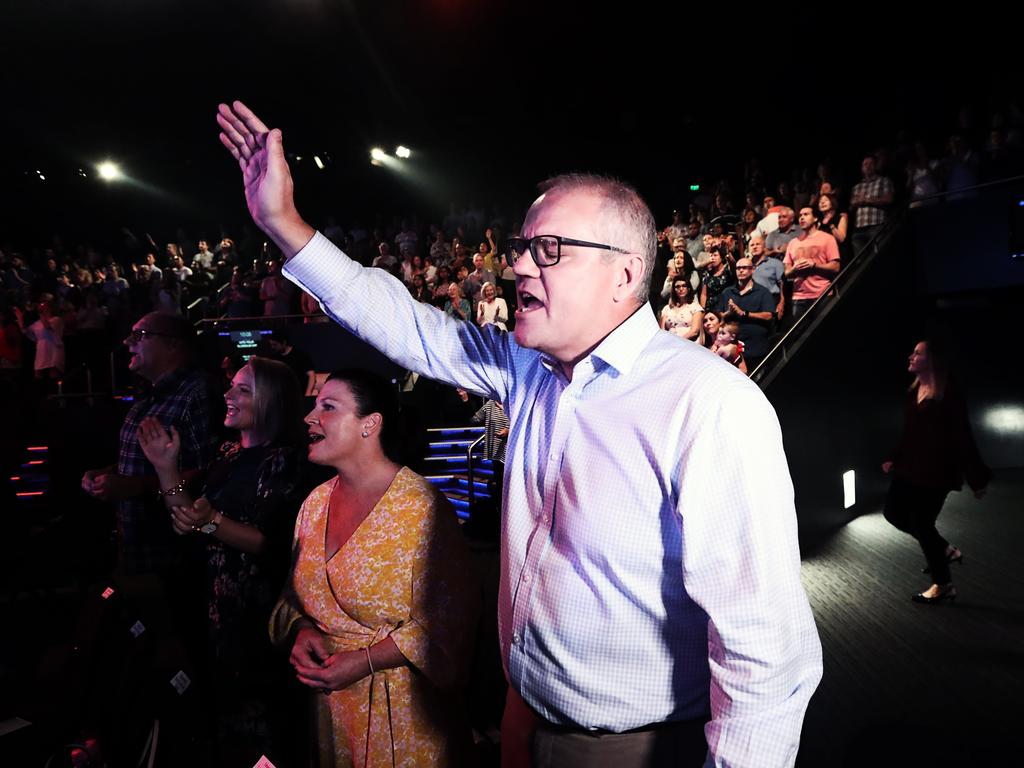‘I forgive them’: Why former prime minister Scott Morrison feels no bitterness
Scott Morrison has a message to the enemies who continue to attack him almost two years since he left office – he forgives them.
Former prime minister Scott Morrison has a message to the enemies who continue to attack him almost two years since he left office – he forgives them.
Though perplexed by the unrelenting “pile-on” since losing office in May 2022, the former prime minister is not bitter about the personal and bitter criticisms he still faces.
Speaking from Tokyo ahead of the release of his new book in which he describes the journey of his Christian faith, he is philosophical.
“They did what they did – in politics, you take the hits, and you’ve got to deal with them,” Mr Morrison said.
“I’m not sooking about it, that’s not what I’m doing. But, equally, like in State of Origin or something like that, OK, you cop a big hit and you cop some low ones.

“But you don’t pretend they didn’t happen. They did happen. Of course, they happened. And they leave their mark.
“So, I move on. I forgive them and I don’t carry any bitterness from it all. I really don’t.”
Political tragics used to poring over prime ministerial memoirs for the score-settling are bound to be disappointed by Plans For Your Good: A Prime Minister’s Testimony of God’s Faithfulness.
Instead of an account of his time in office, Mr Morrison has produced a diary of his spiritual journey which reveals the way God helped him, such as his “miracle” 2019 election victory, to the timing of the arrival of the family dog Buddy.
Even readers who are familiar with Mr Morrison’s Pentecostal faith may be surprised to learn just how important a role religion plays in his life.
“I was deliberate in trying to strike the right balance,” he says of his time in office.

“As a politician and a public figure, I always felt that it was would be insincere not to be clear about the importance of faith in my life.
“But equally, you know, I also wasn’t going to allow that to overwhelm my public role. I mean, it was a big part of my life and formed me and significantly strengthened me.”
News reports about the book have focused on the revelation that at the height of the pandemic, Mr Morrison was prescribed medicine to help him deal with anxiety but, he says, “faith and other things were as much and even more significant in dealing with those challenges”.
“The doctor said ‘I’m amazed you made it this far’. And the reason I had was because of the strength of faith and family in my life,” he said.
To help clear his head from constant bombardment of information during his time in office, Mr Morrison decided to start the day by reading the Bible, slowly making his way from cover to cover.
He said he had since read it again and “now I’m into the third go”.


Mr Morrison’s book is based on notes he took at the time.
“I don’t consider it a political autobiography, as you’ll see the chapters deal more with questions of faith and living as a Christian in what is an increasingly secular world and how you do that, by knowing who you are in your faith and how you try and live and what you hope for,” he said.
Mr Morrison said the world had changed from this childhood in the 1970s, when a Christian culture was still mainstream.
“I grew up when people went to first communions and went to Sunday school. That was not uncommon,” he said.
“That’s not common today. That doesn’t mean people aren’t ethical or anything like that. It just means that religion doesn’t play the role that it once did in our society.
“So, I think Christians will find it more challenging in that environment – they can still live their Christian life as fully and as you would want it to be.

“But that will test people’s faith a lot more. I mean, saying you are a person of faith is a much bigger thing to say today than it was 10 years ago, let alone 50 years ago.”
One of the purposes of the book, he said, was to argue that “the unique integrity of the individual, of the human being – its pricelessness, its worth, its value – is all centred around the idea of … being God-created by his hand and in his image for his glory” which “is the basis of so much, if not all, of what human rights appreciation is today”.
“That’s where it came from, and that’s just an historical fact,” Mr Morrison said.
In the book, he says the attacks he endured since leaving office were “a campaign to humiliate, discredit, and cancel” him.
Quoting scripture, he says that “as Christians, we know what principalities and powers are often behind these attacks”.

Was he saying these attacks were the work of the Devil? Mr Morrison laughed at the suggestion, saying he disconnected the political from the spiritual realm.
“I faced the same thing in politics that other people faced, but, as a Christian, you’re always aware that there is an attempt to frustrate and attempt to knock you down and to prevent you from being forthright about your faith, and to be a witness,” he said.
“A lot of what this book is, it’s just me confessing Jesus Christ in my life. That’s what it is. And that’s what I believe we are called on to do as Christians.
“And as the Bible tells us stories and Christian history tells us stories, there are plenty of forces that rail against that – often unwittingly.”
Originally published as ‘I forgive them’: Why former prime minister Scott Morrison feels no bitterness
Read related topics:Scott Morrison





